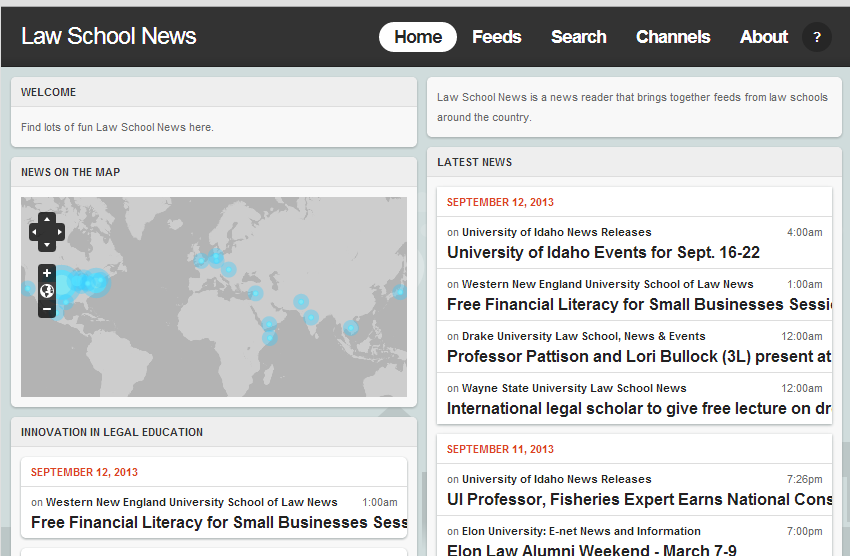Recently while sifting through my project folder I cam across the bits and pieces of a law school news feed aggregator. I had started the code and gathered a dozen or so feeds with an idea of pulling together news from law schools around the country. Like many other weekend projects I had roughed it out and set it aside. The discovery of the code seemed like a nudge to do something with law school news feeds and so a site was born. I’m inviting folks to take a look and let me know if they think is some thing useful that should be further developed or not.
First a disclaimer: This is a personal project and is strictly “nights and weekends”. It is hosted on one of my personal servers. It is not related to any work project I’ve got going.
Let me introduce Law School News, a news reader for law school news feeds. The site gathers news items from the feeds of about 114 US law schools and presents them in an easy to read fashion. Various pages provide lists of feeds and channels to get news on specific schools and topics. Basic search functionality is available.
The feeds included in the site represent about half the law schools in the US. I gathered feed URLs by visiting every law school website and attempting to locate an RSS or Atom feed. I used the links to law school websites found on the LSAC Law School Links page to get to each school’s site. Once on a site I looked for a RSS feed link on the homepage or checked the school’s news page. I did not make any effort to hunt down the feeds if they were not plainly visible. Many schools had more than one feed and in those cases I selected the one that appeared to be a general news feed.
Please note that if you look at the feeds list and see that a particular school is missing it is because either I couldn’t easily locate a feed or the link for the feed didn’t work properly. I have not made a list of schools without feed or with feeds that didn’t work properly. If I missed your school’s feed, let me know in the comments below.
As for the future of this project, who can tell. I would like to expand the coverage to all of the feeds that schools have and that would move beyond news into events, blogs, and library information. And I could certainly wouldn’t mind some help, especially with the tagging of feeds and items. If you’re interested in helping out, let me know in the comments.




